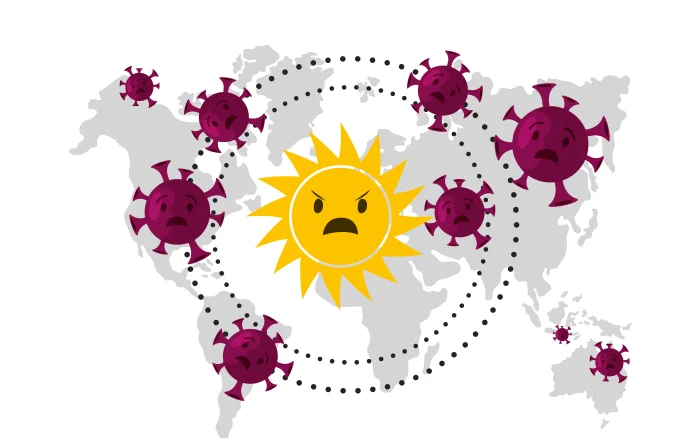The question has been asked by some researchers and political leaders, including President Trump. Addressing a meeting on Feb 10, he said this kind of virus might go away in April as the heat comes in.
It is believed that the virus can survive for up to four days on surfaces. Paul Hunter, a researcher at the University of East Anglia, UK thinks that the virus will not survive for long in the summers. He says that there is a possibility that the virus will burn out in the summer only to come back again in the winter, and become endemic.
Dr. Gregory Gray of Duke University’s Global Health Institute Division of Infectious Diseases also believes that the summers may reduce the transmission of the virus but will not completely stop it as the virus is quite infectious, and almost everyone is susceptible to it.
However, if the virus becomes less contagious when the temperature rises, there is a greater risk it will spread in the southern hemisphere. David Heymann who led the global response to the SARS flare-up in 2003 pointed out that the MERS coronavirus originated in Saudi Arabia in August when the temperature was quite hot. This shows that the viruses are capable of spreading during warmer seasons.
According to the Centers for Disease Control and Prevention, viruses such as the common cold and flu are more likely to spread during the winter, but that does not mean you cannot catch a cold during other months. At this moment, it is not clear if the spread of COVID-19 will decrease when the weather gets hotter.
While the researchers are working to learn more about the transmission, severity, and other characteristics of the deadly virus, it is essential that everyone takes proper measures to keep themselves and others safe. Adopt social distancing, wash your hands more often, use an alcohol-based hand sanitizer, and wear a mask that properly fits around your nose and mouth.
– Disclaimer –
This blog is for informational & educational purposes only, and does not intend to substitute any professional medical advice or consultation. For any health related concerns, please consult with your physician, or call 911.
-
About The Author
Dr. Syra Hanif M.D.Board Certified Primary Care Physician
Dr. Syra Hanif is a board-certified Primary Care Physician (PCP) dedicated to providing compassionate, patient-centered healthcare.
Read More







